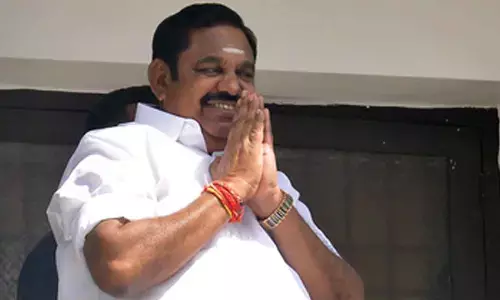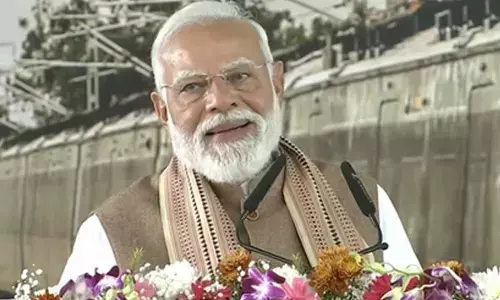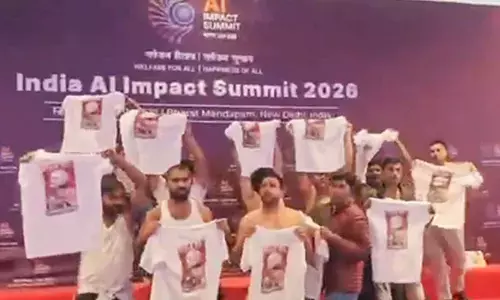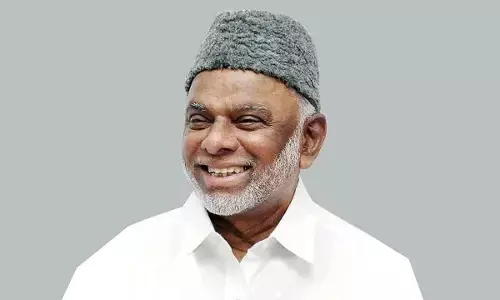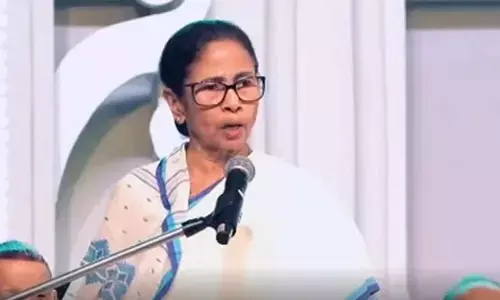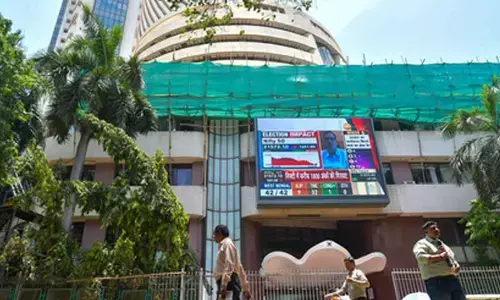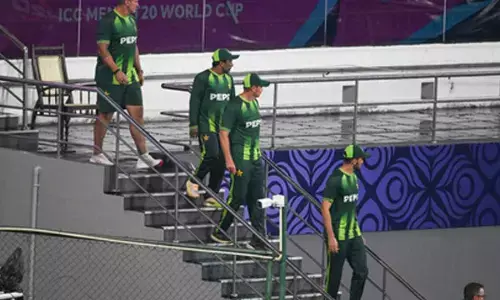Looking back at special moments
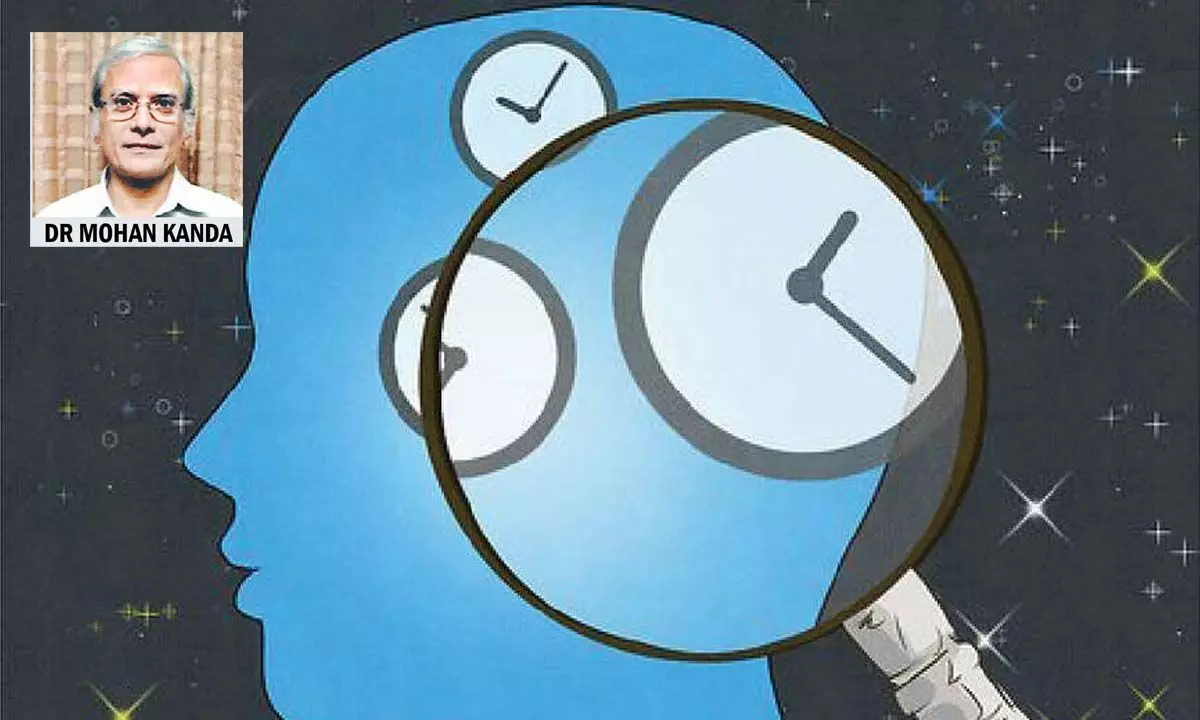
In 1996, as a Joint Secretary in the Union Ministry of Agriculture, I travelled to the Philippines to attend a workshop organised by the International Institute of Rural Reconstruction. At Delhi
In 1996, as a Joint Secretary in the Union Ministry of Agriculture, I travelled to the Philippines to attend a workshop organised by the International Institute of Rural Reconstruction. At Delhi, I had gone straight to the airport from a meeting, and the Ministry’s protocol staff had already checked in my baggage. Therefore, at Manila, I could not identify my suitcase and had to match my baggage card with that of every other item of the offloaded baggage. A tall American, next to me, asked me with an amused look, “Couldn’t find anything you liked mate?!”
Even after once having lost my passport, earlier, in Sri Lanka, I managed to do it again at Kiel, in Germany, while on an official visit. The Consulate General of India, at Hamburg, provided me with a document that allowed me to return to India. While awaiting completion of departure formalities at the Kiel airport, I had an interesting conversation with the officer in charge of the security check about the books of my favourite author, Harlan Coben, and Myron Bolitar, a character from the novels of Coben. As I was proceeding to board the aircraft, the officer said, with a smile, “Mr Myron Bolitar, don’t you need your passport?” I had escaped a hat-trick of passport losses!
A very amusing incident took place while I was an Officer Trainee (OT) at Mussoorie at the National Academy of Administration.
I got out of bed in the morning of the Christmas Day, stepped out of my room, and found myself on an apparently endless skid, over a sheet of overnight snow, finally landing at the horse riding rink, a good 400 feet below my room in the Happy Valley Block!
After retirement, as a Judge of the Andhra Pradesh High Court, father set up practice in the Supreme Court at Delhi. I joined in Hindu College, Delhi University, to pursue a B Sc. (Hons), course. During the summer vacation of 1961, I accompanied my parents on a holiday to Shimla, where my uncle Krishnamurthy was working for the Central government. One day, my cousin Achut, and I, decided to go on a trek. A tourist guide suggested that the Hatu Peak would be an interesting choice. We embarked on an adventure promising thrill and excitement. After a bus journey of a couple of hours, we reached Narkanda town, nestled at the foothills of the peak, and camped for the night. We set off for the trek next morning, armed largely with an overdose of youthful exuberance, total ignorance of mountaineering and absolutely no inkling of what was in store for us!
Not having a guide to help us locate the proper route to the peak, we reached the base of the wrong side of the mountain! From that point, there was no regular track to the peak, and we had to depend on stones, and branches of plants for foothold and leverage, while making our way up. Halfway during the climb, we began to get doubts about the very wisdom of the whole adventure, and wondered whether we would at all reach our destination. Somehow or other, we reached the peak, bruised, bleeding, desperately thirsty and hungry but triumphant!
The view from the top was magnificent! There were the snow clad peaks of the Himalayas, all along the horizon, in a 360° arc. The breeze was cool and pure and it was an exhilarating experience. The peak itself was a lush green patch, roughly the size of a football field.
Needless to say, we carried no water or food with us. The brochure we had read about the peak had painted a picture of a flourishing tourist destination where such things would be available in plenty!
While we were debating how to return to the base of the mountain, we fortunately heard some voices on the other side of the mountain. Cautiously, we made our way down and found, to our unspeakable relief, a unit of the Indian Army. The officers and the men were extraordinarily courteous and understanding. After administering first aid to us, feeding us and stocking us generously with things we might need on the journey back to Shimla, they bade us a hearty farewell. Exhausted, but extremely contented, we made our way back to Shimla.
It was not until I had to take a medical examination after selection to the IAS, did I realise that I had a condition called defective colour vision, a polite, and politically correct, way of describing mild colour blindness. I suppose! I should really have suspected it when, once in Hindu college, a Chemistry experiment was in progress. Our Chemistry Professor D N Mehra was, as he always did, sitting on elevated platform at one end of the room, watching us perform a titration. At a stage, when two-liquids were being mixed, the appearance of pink colour was supposed to signal the next step of the experiment. As I kept mixing, the colour kept changing. I continued to mix and the mixture was getting darker and darker. Finally, in sheer exasperation, Prof Mehra had to yell, at the top of his voice, saying, “Mohan! Stop, for God’s sake!! The colour is already turning black!”
After selection to the IAS, and on completion of training at the National Academy of Administration, Mussoorie, I was allotted to the cadre of Andhra Pradesh state and posted as an Assistant Collector (under training) to Krishna district. After that period of training was over, I was posted as Sub Collector, Ongole, in the newly formed Prakasam district. As the Sub Collector, I had the duty of hearing appeals on the decisions of Tahsildars in my division, on matters relating to tenancy of agricultural lands. One evening, an elderly gentleman dropped in at home, introducing himself as a friend of my father’s. Usha and I, naturally, extended all due courtesies to him. During the course of the conversation, he casually let it be known that he was appearing in a case to be heard by me the next day. He dropped a subtly worded suggestion that I should look at the positive aspects of his case. Firmly, but gently, I told him that it was not quite proper for him to have used a social occasion to raise an official matter. And a matter of quasi-judicial nature, at that. During the course of the arguments the next day, the lawyer even quoted an excerpt, from one of my father’s judgements, in support of his case. Fortunately, I was able to distinguish between the facts and the law, as they stood in the case, and the view which my father had taken. In the result, I dismissed the appeal, and my conscience was clear. Apparently, my father just let it go, with a smile, when somebody brought the incident to his notice later!
Though of a somewhat dark shade in complexion, and a little short, my brother, Murthy was an extraordinarily fit and agile person, good at many sports, particularly cricket. In every team he played for, he was always the wicket-keeper and, therefore, the man who stayed in the same place all the time when the opposition was batting. And, when the turn came for his team to bat, he would open the innings, and, almost always, the last man to return to the pavilion, unbeaten! But, somehow, he never managed to learn to drive a four-wheeler. Apparently, it was because of an earlier incident.
He was just beginning to try his hand at driving, with an ‘L’, or a learner’s board, hung over the number plate of the vehicle. And, on a dead collision course with the car he was driving was another vehicle, with a lady at the steering wheel, who also had an ‘L’ board. The inevitable happened, with the two vehicles colliding. What really made my brother swear off driving forever, thereafter, was that on account of the jolt of the collision, the lady’s dentures had come off!
(The writer was formerly Chief Secretary, Government of Andhra Pradesh)


